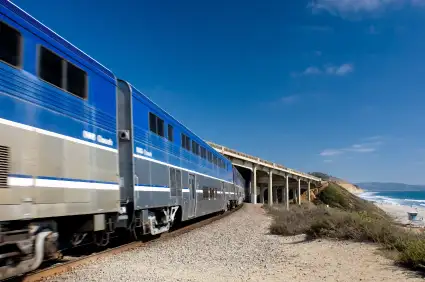
Although the recent election won’t change anything right away, you’re likely to see some effects on travel fairly soon—and possibly some big effects in a few years.
Large-scale rail projects were the big immediate losers. Recently elected governor Chris Christie of New Jersey has already canceled preliminary work on the new tunnels into Manhattan, and the governors-elect of Ohio and Wisconsin have declared against any ongoing work on the proposed high-speed rail systems in their states. You may see additional cancellations in coming weeks. However, at least so far, the California system seems to remain active.
The future outlook for big rail projects is uncertain. Beyond funding issues, John Mica (R-FL), the presumed incoming chair of the House Committee on Transportation and Infrastructure, is on record as opposing the idea of spreading money around the country for modest rail improvements. Instead, he has favored limiting funding to a very few projects where real high-speed rail makes the most sense. Previous administrations have instead tried to distribute the funding widely, as much to assure broad political support as to offer economically justified projects. Although that approach limited most development to incremental improvements rather than true high-speed projects, it probably stood a better chance of bipartisan support than focusing on a few big projects: Spending money collected from across the country on projects that benefit only a few states is a tough political sell under any administration. {{{SmarterBuddy|align=left}}}
For air travelers, the major short-term impact may well be on cross-border airline mergers and alliances. The outgoing House committee chair, Jim Oberstar (D-MN), is widely viewed as the government’s staunchest opponent of foreign investment in U.S. airlines and cross-border mergers. But Oberstar will not just lose his chairmanship; he also lost his re-election bid, so his departure will presumably encourage proponents of cross-border corporate affiliations. Most industry insiders believe that mega-mergers among the giant U.S., European, and Asian airlines would benefit the industry players. Those same folks always spout off about “consumer benefits,” too, but their arguments are not very convincing.
Longer term, by far the most important aviation issue for everyday travelers is the DOT’s ongoing program to upgrade the national air traffic control system. When finally implemented, “NextGen” traffic control will alleviate many of the worst airline delay problems. It will also lead to easing of the severe bad-weather capacity problems that plague several key airports, most notably the three New York City fields and San Francisco International. The big question, of course, is whether a House bent on cutting federal spending will target NextGen for cuts and delays. Regardless of your political affiliation, you probably don’t want to see that happen. But, at least to some, no “discretionary” spending is “off the table” for possible cuts.
Overall, the House can deny funding to just about any government program, and that’s a very powerful weapon. Outside the funding realm, however, the outlook is for not much change. The new House is not likely to pass any new pro-consumer legislation, but the Senate and the White House will probably not accept any reductions in current protections. And at least for the next few years, the Department of Transportation will likely go ahead with its proposed new consumer protection rules for air travelers—an administrative rather than legislative change.
My personal bias has long been in favor of high-speed rail developments. But I know that many of them are very hard to justify in economic terms—meaningful rail improvements are unbelievably expensive—and I also believe that, specifically, the abandoned New Jersey rail tunnel program was so seriously flawed that we should welcome the chance to do it over and do it right. But I can’t help but conclude that the only domestic high-speed rail service I’m likely to see in my lifetime is—maybe—at least some portions of the California program, which is sad.
Your Turn
What improvements in rail travel would you like to see? In what projects do you want the government to invest? Share your ideas by adding a comment below!
We hand-pick everything we recommend and select items through testing and reviews. Some products are sent to us free of charge with no incentive to offer a favorable review. We offer our unbiased opinions and do not accept compensation to review products. All items are in stock and prices are accurate at the time of publication. If you buy something through our links, we may earn a commission.
Related
Top Fares From
Today's Top Travel Deals
Brought to you by ShermansTravel
France: 8-Night Paris, Avignon & Nice...
Infinity Worldwide Vacations
 vacation
$2880+
vacation
$2880+
Poconos: 3 Nts in Garden of...
ResortsAndLodges.com
 hotel
$305+
hotel
$305+
7-Nt Canada & New England Cruise,...
Princess Cruises
 cruise
$839+
cruise
$839+



